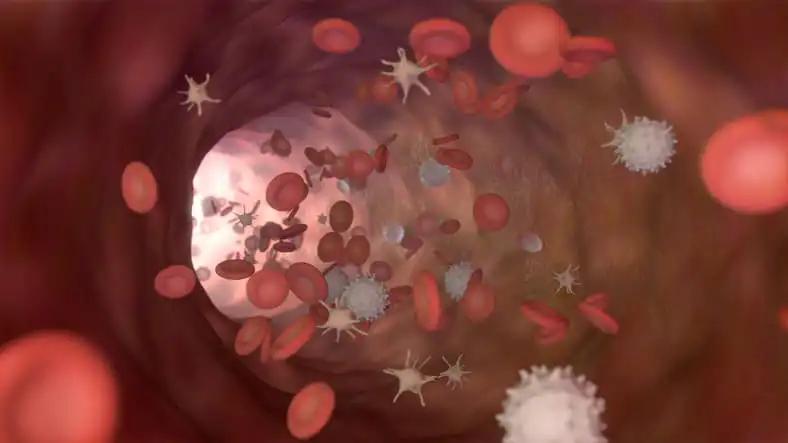KEY TAKEAWAYS
- The MRD Phase 2 trial (NCT02969837) aimed to examine the rate of sCR and MRD-negativity following eight cycles of Elo-KRd treatment.
- Elo-KRd was given to NDMM patients. Elo-KRd treatment ended after MRD-negative findings reached a threshold after cycles 8 and 12. Elo-Rd continued until the illness progressed.
- 58% of trial subjects achieved sCR and MRD-negativity after eight cycles of Elo-KRd, above the predetermined efficacy criterion. MRD-negativity (10-5) reached 70%, and MS-negativity reached 65%.
- 46 patients, average age of 62, were studied. 24% of patients were 70+. 48% exhibited high-risk cytogenetic abnormalities, and 70% were White.
- The study concluded that Elotuzumab with KRd without ASCT produced a high proportion of stringent complete and MRD-negative responses that persisted over time.
People with newly diagnosed multiple myeloma (NDMM) are treated with a quadruplet regimen that includes a monoclonal antibody, proteasome inhibitor, immunomodulatory imide, and corticosteroid, progression-free survival (PFS) is better than with triplet regimens. Researchers don’t know the best quadruplet combination or if it eliminates the need for a frontline autologous stem cell transplant (ASCT). Researchers looked at elotuzumab and weekly carfilzomib, lenalidomide, and dexamethasone (Elo-KRd) without ASCT in NDMM. To find out how well Elo-KRd works in NDMM using a measurable residual disease (MRD)-adapted approach, regardless of whether or not ASCT is an option.
Between July 2017 and February 2021, people from different centers participated in this phase 2 study with only one arm. The average time to follow up was 29 months. Twelve to twenty-four cycles of Elo-KRd. The length of Elo-KRd was based on the number of straight MRD-negative results at 10-6 by next-generation sequencing (NGS) after cycles 8 (C8) and 12. This was followed by maintenance treatment with Elo-Rd (no carfilzomib) until the disease worsened. The main goal was the strict complete response (sCR) rate and MRD-negativity (10-5) after C8 Elo-KRd. Other endpoints were safety, the response rate, the state of MRD, progression-free survival (PFS), and overall survival (OS). Liquid chromatography-mass spectrometry (MS) was used on peripheral blood samples to look for signs of MRD. A total 46 patients were registered; the average age was 62, and 11 (or 24%) were older than 70. Overall, 32 (70%) were White, 6 (13%) were Black, 3 (6%) were more than one race, and 5 (11%) were of unknown ethnicity. About 33 were men, 72%, and 13 were women or 28%. In 22 (48%) of the cases, there were cytogenetic changes that were high risk. The rate of sCR and MRD-negativity after C8 was 58% or 26 out of 45 people. This was above the statistical bar for effectiveness that had already been set. Responses became more detailed over time, with the MRD-negativity (10-5) rate going up to 70% and the MS-negativity rate going up to 65%. MRD by NGS and MS became more in sync over time. Lung infections (13%) and infections that were not in the lungs (11%) were the most common side effects, with a grade of 3 or 4 (>10%). One heart attack in grade 5 happened. Overall, the 3-year PFS was expected to be 72%, and it was 92% for people who did not have MRD (10-5) at C8. An MRD-adapted design that used elotuzumab and KRd once a week without ASCT showed a high rate of sCR and MRD-negative reactions that lasted for a long time. This method supports further testing of MRD-guided deescalation of therapy to reduce exposure to treatment while keeping severe reactions.
Source: https://pubmed.ncbi.nlm.nih.gov/35862034/
Clinical Trial: http://clinicaltrials.gov/show/NCT02969837
Derman BA, Kansagra A, Zonder J, Stefka AT, Grinblatt DL, Anderson LD Jr, Gurbuxani S, Narula S, Rayani S, Major A, Kin A, Jiang K, Karrison T, Jasielec J, Jakubowiak AJ. Elotuzumab and Weekly Carfilzomib, Lenalidomide, and Dexamethasone in Patients With Newly Diagnosed Multiple Myeloma Without Transplant Intent: A Phase 2 Measurable Residual Disease-Adapted Study. JAMA Oncol. 2022 Sep 1;8(9):1278-1286. doi: 10.1001/jamaoncol.2022.2424. PMID: 35862034; PMCID: PMC9305600.



